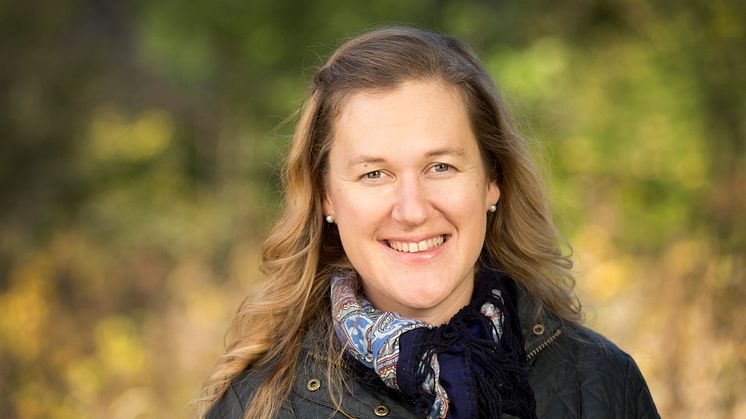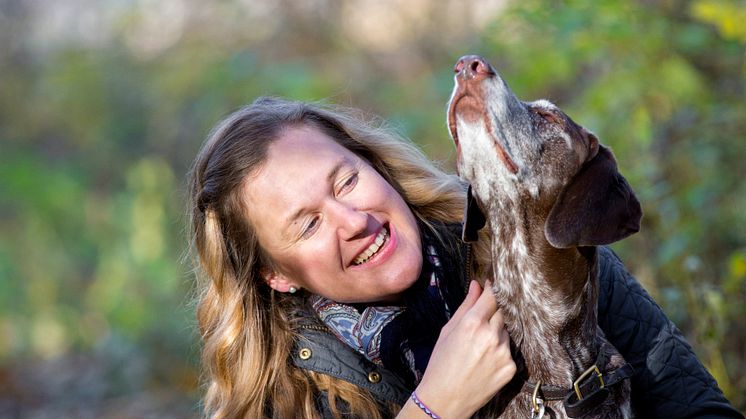Press release -
Early contact with dogs linked to lower risk of asthma
A team of Swedish scientists have used national registries encompassing more than one million Swedish children to study the association between early life contact with dogs and subsequent development of asthma. This question has been studied extensively previously, but findings have been inconclusive. The new study found that children who grew up with dogs had about 15 percent lower risk of asthma than children without dogs.
A total of more than one million children were included in the researchers’ study linking together nine different national data sources, including two dog ownership registers not previously used for medical research. The results are being published for the first time in JAMA Pediatrics. The goal was to determine whether children exposed to animals early in life are at different risk of asthma.
‘Earlier studies have shown that growing up on a farm reduces a child’s risk of asthma by about half. We wanted to see if this relationship also was true also for children growing up with dogs in their homes. Our results confirmed the farming effect, and we also saw that children who grew up with dogs had about 15 percent less asthma than children without dogs. Because we had access to such a large and detailed data set, we could account for confounding factors such as asthma in parents, area of residence and socioeconomic status’ says Tove Fall, Assistant Professor in Epidemiology at the Department of Medical Sciences and the Science for Life Laboratory, Uppsala University. She coordinated the study together with researchers from Karolinska Institutet in Stockholm, Sweden.
In Sweden, every person carries a unique personal identity number. Every visit to a specialist physician and every prescription made are recorded in national databases, accessible to researchers after de-identification of data. Even dog ownership registration is mandatory in Sweden since 2001. These scientists studied whether having a parent registered as a dog-owner or animal farmer was associated with later diagnosis or medication for childhood asthma.
’These kind of epidemiological studies look for associations in large populations but do not provide answers on whether and how animals could protect children from developing asthma. We know that children with established allergy to cats or dogs should avoid them, but our results also indicate that children who grow up with dogs have reduced risks of asthma later in life. Thanks to the population-based design, our results are generalizable to the Swedish population, and probably also to other European populations with similar culture regarding pet ownership and farming‘ says Catarina Almqvist Malmros, senior author of the study, Paediatrician at Astrid Lindgren Children’s Hospital and Professor in Clinical epidemiology at Dept of Medical Epidemiology and Biostatistics at Karolinska Institutet, Stockholm.
Publication: ’Dog and farm animal exposure reduce risk of childhood asthma – a nationwide cohort study‘. Tove Fall, Cecilia Lundholm, Anne K Örtqvist, Katja Fall, Fang Fang, Åke Hedhammar, Olle Kämpe, Erik Ingelsson, and Catarina Almqvist. JAMA Pediatrics. In press.
Financial support was provided by the Swedish Research Council, through the Swedish Initiative for Research on Microdata in the Social And Medical Sciences (SIMSAM), ALF grants provided by the Stockholm County Council, the Strategic Research Program in Epidemiology at Karolinska Institutet, the Swedish Heart Lung Foundation, the Swedish Society for Medical Research, Bror Hjerpstedts stiftelse and Tore Nilssons stiftelse.
For further information, please contact:
Tove Fall, Assistant professor in Epidemiology, Department of Medical Sciences, Molecular Epidemiology, and the Science for Life Laboratory, Uppsala University, Mobile: +46 (0)70-221 58 59, E-mail: tove.fall@medsci.uu.se
Catarina Almqvist Malmros, Professor in Clinical Epidemiology, Department of Medical Epidemiology and Biostatistics, Karolinska Institutet, Mobile: +46 (0)70-116 08 52, E-mail: catarina.almqvist@ki.se
Science for Life Laboratory (SciLifeLab) is a Swedish national centre for molecular biosciences with focus on health and environmental research. The centre combines advanced technical know-how and state-of-the-art equipment with a broad knowledge of translational medicine and molecular bioscience.
Topics
Uppsala University -- quality, knowledge, and creativity since 1477
World-class research and outstanding education of global benefit to society, business, and culture.
Uppsala University is one of northern Europe's highest ranked academic institutions. www.uu.se


